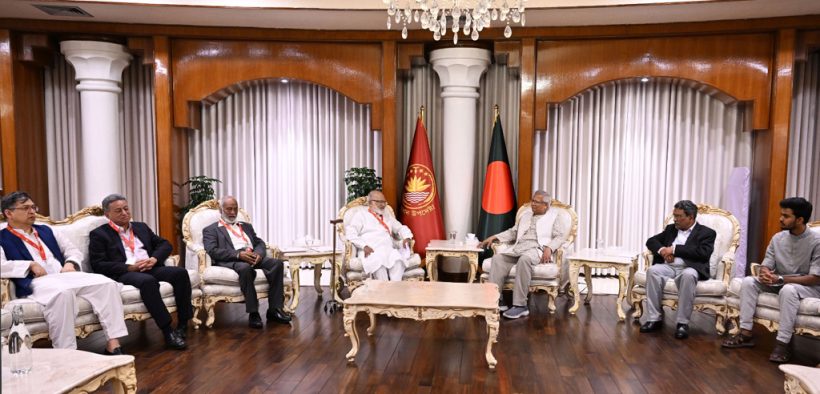BNP standing committee member Amir Khasru Mahmud Chowdhury said that their party had clearly stated its position on reforms while the government side agreed that reforms should be pursued based on consensus and could be implemented quickly.
He said that there was a consensus on allowing the judiciary to independently handle the judicial processes, including bringing individuals under legal scrutiny.
‘Therefore, it is possible to hold elections even before December — this was discussed in the meeting,’ Khasru said.
BNP standing committee member Salahuddin Ahmed said that they demanded the removal of the national security adviser and two student advisers, citing their roles as detrimental to the neutrality of the interim government.
Another BNP standing committee member, Abdul Moyeen Khan, said that once the government formally announced an election road map, stability would be restored in the country.
Jamaat ameer Shafiqur Rahman told reporters that the ongoing crisis could be solved by announcing two road maps: one for elections and the other for reforms.
NCP convener Nahid Islam said that their position remained same for the announcement of July Declaration in 30 days as promised and a comprehensive road map encompassing the trial of the July Uprising killings, reforms, and local body elections before the national polls.
Chief adviser’s press secretary Shafiqul Alam said all the three parties requested the chief adviser not to quit citing the ground that people of the country had confidence in Professor Yunus.
He said that the chief adviser assured them that the election would be held between December this year and June 2026.
The press secretary said that Jamaat had endorsed the government plan for elections while the BNP pressed for the elections by December in their respective meetings.
He said that the NCP on the other hand underlined the need for creating a level playing field for a free and fair election by recasting the Election Commission.
Earlier, on the day, the chief adviser held an unscheduled meeting of the council of advisers at the Planning Commission.
After the meeting, planning adviser Wahiduddin Mahmud told reporters on Saturday that chief adviser Professor Yunus had not resigned and would continue in his role, along with the other advisers, to carry out the interim government’s responsibilities.
Earlier, on Wednesday, the chief of army staff, General Waker-Uz-Zaman, expressed concern over the country’s political situation during an ‘Officers’ Address’ at the Dhaka Cantonment, where he stated that general elections should be held in December this year.
A day after the Army chief’s remarks, chief adviser Professor Yunus on Thursday indicated that he would not continue in his role if the current political situation remained unchanged.
Following an hour-long cabinet meeting in the morning, Professor Yunus spent over three hours in discussion with his cabinet colleagues at his office, where he reportedly expressed deep frustration and stated that he had decided to step down.
Following the chief adviser’s indication to resign on Thursday, law adviser Asif Nazrul — currently abroad — was informed by cabinet colleagues and subsequently briefed BNP secretary general Mirza Fakhrul Islam Alamgir in Singapore.
Later that evening, the National Citizen Party confirmed that NCP convener Nahid Islam met with the chief adviser, who reiterated his intention to resign amid the ongoing political crisis.












